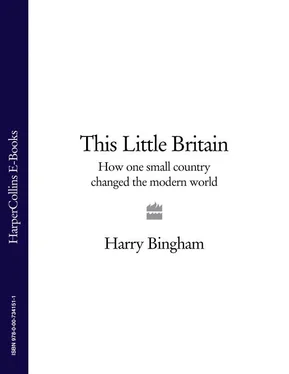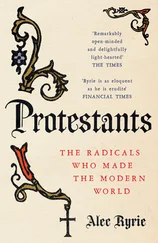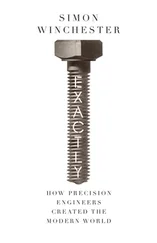These aren’t small things. In fact, not to put too fine a point on it, the modern world has been more deeply shaped by Britain than by any other country. And we brought some good stuff to the party. Democracy, the limited state, the rule of law, free trade, industrialization, modern agriculture, modern finance, international law — none of these is exclusively British, but they’re all sticky with our fingerprints. To the (very considerable) extent that the world is now shaped by American power and American values … well, we know which country gave her birth. If the modern world is richer, freer, more peaceful, more democratic and healthier than it was, then Britain has played a leading role, often the leading role, in that transformation.
This book is about just that. What follows is a series of observations about very particular aspects of our culture and history. But underlying these observations is a broader theme, that of British exceptionalism: the ways in which our history is most strikingly different from that of our neighbours. This book takes a particular interest in the many things that we did first, or best, or most, or were the only ones ever to do. It focuses especially on those of our oddities which spread across the world — everything from football to the rule of law.
This isn’t meant to be a balanced way to view ourselves. A balanced view would take into account the many ways in which we were identical to our neighbours, or borrowed ideas and institutions from them. It would look at the ways in which we were last or worst or feeblest. Yet those viewpoints already have wide expression in our culture. Those ladettes in the gutter or the yobs dancing on the bonnet symbolize all that we already dislike in ourselves. This book is a reminder of the other side, the side that our grumbling too often ignores.
Along the way, a picture of Britain emerges: one possible answer to the conundrum of Britishness, one way of answering that question, ‘Who are we?’ And if the book skates over much of what is least praiseworthy in our culture, then at least it aims to do justice to our joint creation: a world inconceivably better now than it was four hundred years ago. A world that, compared with that earlier age, is (mostly) prosperous, (mostly) free, (mostly) technically advanced. In short, a world that is (mostly) British.
Before proceeding farther, a few caveats are in order. Readers wanting to race straight through to the action should do just that.
The first caveat has to do with the horrendous complexity of the term ‘British’. Britain in its current shape dates from only 1707, and that’s to ignore all the complexities of Britain’s relationship with Ireland, and indeed its relationships with the overseas colonies and dominions. Before the Act of Union, there was a century in which the crowns of Scotland and England were joined, albeit with one or two rude interruptions, yet those two countries and Ireland were all importantly separate from one another. That separateness, indeed, was a crucial complicating factor during the turbulence of that century. Prior to 1603, old-fashioned histories of Britain are generally content to talk about England almost exclusively until a British identity starts to flicker into life in the early-modern era. This approach is a nonsense, of course. If Britain means anything at all prior to 1603, then it designates a geographical area that certainly includes Scotland. The most recent history to take these issues seriously was called simply The Isles , a title that squarely places geography ahead of politics.
The complications of Britishness are perhaps most evident in relation to Ireland. That country was colonized by the British, and its citizens were for a long time both Irish and British. Which identity is paramount? It all depends on who you ask. When called an Irishman, the Dublin-born, London-dwelling Duke of Wellington is said to have replied that ‘Being born in a stable does not make one a horse.’ On the other hand, the Ulster-born, Dublin-dwelling Seamus Heaney refused to have his work included in a book of British verse, writing, ‘Be advised, my passport’s green. / No glass of ours was ever raised / To toast The Queen’
In this book, I haven’t attempted to solve this or any other identity problem. Indeed, I’ve simply avoided definitions altogether. If Scottish soldiers in Canada develop the sport of ice hockey, then that, for me, is an example of Britishness in action. If a French-born king of England (but not Wales or Scotland) develops the common law, then that too, for the purposes of this book, counts as an example of Britishness in action. There’s no neat logic in action here, but then if it’s logic you were after, you shouldn’t have bought a book about Britain.
I’ve a further confession to make, namely that Scotland, Wales and Ireland don’t figure much in my account of exceptionalism in the pre-modern era. There are two reasons for that, one good, one bad. The bad one is simply that this is a short book with a lot to do. By focusing on England, I was able to narrow the amount I needed to read about and write about. It was a labour-saving device, and nothing more. The better reason is that, in those earlier centuries, the most important elements of exceptionalism to arise anywhere in the British Isles had to do with the English language, the English common law and the rise of the English parliament. Since England would become the dominant partner in the subsequent political unions, those English oddities would prove more lastingly influential than comparable oddities elsewhere in the archipelago. In any event, it’s possible to get too hung up about all of this. I live in England, but spent huge chunks of my childhood in Wales. My grandfather was Protestant Ulster, his ancestors Scots and his wife Manx. My wife’s maiden name is Moroney, and her father Catholic Irish. I’m hardly exceptional in being this much of a mixture. If football fans of one home nation want to get all steamed up with those of another, then that’s up to them, but it’s not much different from the liver yelling insults at the pancreas, the heart giving aggro to the gall bladder.
Finally, one last caveat. This book is rather unfashionable in celebrating British achievement. It suggests that the nation’s part in shaping the modern world exceeds the role played by any other country, not only in terms of the scale of its impact, but in terms of its benefits too. (That’s not to say there weren’t disbenefits also. There were, and very significant ones at that.) Any such celebratory tone can easily seem rather embarrassing, a display of bad taste akin to having a flagpole in your front garden or enjoying the poetry of Rudyard Kipling. Personally, though, I’m not sure that questions of taste should determine what history to remember. The naval historian, Nick Rodger, had this to say about his own field of expertise:
Many modern writers implicitly assume that the functions of the Navy were essentially aggressive, to win territory overseas. It seems for them to follow that sea power is nowadays both uninteresting, except to specialists in imperial history, and morally disreputable, something that the honest historian ought to pretend does not exist.
A similar comment could be made more broadly about any view of Britain which lays too much emphasis on the positive, on the distinctive and on the world-shaping. This book certainly does lay too much emphasis on these things. I hope I’ve made it crystal clear that it is not intended as an even-handed survey. Yet honest historians ought never to pretend or imagine things away. History, like life, doesn’t make for easy moral conclusions. Any historian wanting to avoid a ‘morally disreputable’ and intellectually shallow patriotism risks biasing the picture in the other direction, overlooking facts that should not be overlooked. If this book has a serious purpose, then it’s this: to thump down on the table a whole collection of such facts. Included in the collection are some obvious but under-emphasized ones, such as British naval predominance, and some less obvious ones too — for example, facts connected with social welfare, homicide, sports or the health transition.
Читать дальше











